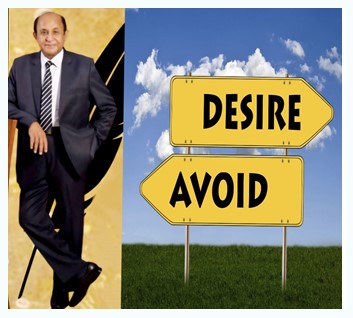di Krishan Chand Sethi
L’autodisciplina è un ossimoro, poiché può essere vista sia come uno strumento di libertà che come una catena che limita. È al centro dello sviluppo personale e del successo, ma a volte agisce come un ostacolo al soddisfacimento immediato o ai veri bisogni. Se l’autodisciplina rappresenta libertà o restrizione dipende dalla nostra percezione, dal suo utilizzo e da quanto è connessa ai nostri obiettivi e valori interiori. Il termine autocontrollo si riferisce al controllo di sé stessi in termini di sentimenti, pensieri e azioni quando si tratta di raggiungere obiettivi a lungo termine. In sostanza, significa superare impulsi momentanei e dare spazio a comportamenti considerati conformi ai propri valori e aspirazioni. In un certo senso, è qualcosa da celebrare come uno strumento di successo. Atleti, scrittori, imprenditori o visionari disciplinati attribuiscono i loro risultati alla disciplina. Tuttavia, è anche vista come una negazione del piacere personale o della spontaneità e una soppressione dei desideri, che può portare a rigidità emotiva e psicologica.
La doppia natura dei desideri
I desideri sono complessi: possono essere impulsivi e fugaci o profondamente radicati e collegati al nucleo del nostro essere. Per esempio:
Desideri impulsivi: Voglia di cibo spazzatura durante una dieta o abbuffarsi di programmi TV quando si voleva studiare.
Desideri fondamentali: Relazioni significative, arte con senso o una carriera appagante.
L’autodisciplina funge da filtro per distinguere tra ciò che è immediato e ciò che è realmente importante.
L’autodisciplina come libertà
Ecco una riflessione strutturata sui concetti di autodisciplina, desideri e libertà, con esempi e casi di studio che esplorano i lati positivi e negativi dell’autodisciplina.
- Padronanza dei desideri
La libertà, interpretata correttamente, non è mancanza di restrizioni, ma il potere di fare ciò che si vuole in base ai propri valori e obiettivi. Solo attraverso l’autodisciplina si può ottenere la libertà superando gli impulsi. Una persona senza disciplina è schiava dei desideri fugaci, delle tendenze addictive o delle pressioni sociali.
Esempio: Un risparmiatore saggio mette da parte denaro in banca per eventuali emergenze o come investimento, rendendosi immune da problemi finanziari. - Soddisfazione a lungo termine
L’individuo autodisciplinato è disposto a sacrificare il piacere a breve termine per ottenere ricompense maggiori in seguito. Questo si allinea alla teoria dell’adattamento edonico, secondo cui la felicità a lungo termine deriva da risultati personali, realizzazione e connessioni umane significative.
Caso: Un maratoneta. La fatica quotidiana può sembrare soffocante, ma correre una maratona lascia un senso travolgente di realizzazione e libertà. - Costruzione di autostima e rispetto per sé stessi
È più facile sentirsi sicuri quando si rispettano i propri principi. L’autocontrollo aumenta la fiducia perché dimostra a sé stessi che si è capaci di realizzare obiettivi.
Esempio: Uno studente che regola le sue abitudini di studio diventa più sicuro grazie alle sue prestazioni scolastiche. - Libertà di scelta
Ironia della sorte, l’autodisciplina amplia le scelte invece di limitarle. Abitudini sane e comportamenti aprono nuove opportunità.
L’esercizio fisico consente uno stile di vita più attivo
Imparare una nuova abilità crea possibilità di carriera.
Prospettiva filosofica: Jean-Paul Sartre credeva che la libertà si realizzasse autenticamente scegliendo con impegno, anche attraverso la disciplina.
L’autodisciplina come restrizione: l’anti-Caso dell’iper-Regolamentazione - Soppressione dei desideri
L’autodisciplina è scoraggiata quando sopprime i bisogni istintivi, causando frustrazione o rabbia.
Esempio: Un dieter estremamente rigido potrebbe non apprezzare una cena improvvisata con amici o familiari. - Probabilità di Burnout
L’eccessiva disciplina può portare a stress fisico e mentale.
Caso: Professionisti sottoposti a pressioni incessanti possono esaurirsi inseguendo la perfezione a scapito del benessere. - Perdita di spontaneità e gioia
Troppo autocontrollo può eliminare la spontaneità dalla vita, rendendola meccanica.
Esempio: Un artista troppo disciplinato potrebbe soffocare la sua creatività perdendo ispirazioni spontanee. - Paura del fallimento
Ironia della sorte, l’eccessiva disciplina può portare alla paura di fallire e a sentirsi colpevoli se qualcosa va storto.
Trovare l’Equilibrio
Per bilanciare autodisciplina e desideri, segui questi principi: - Identifica i valori fondamentali: allinea la disciplina ai valori profondi.
- Pratica la flessibilità: concediti momenti di indulgenza.
- Disciplina consapevole: agisci intenzionalmente, non automaticamente.
- Equilibrio tra lavoro e divertimento: alterna lavoro e svago per il benessere.
- Accetta gli errori: tollerare i fallimenti aiuta a costruire resilienza.
Principi filosofici sull’autodisciplina - Stoicismo: disciplina come libertà.
- Esistenzialismo: autenticità attraverso la disciplina.
- Buddismo: la “Via di mezzo”
Conclusione: La disciplina come potenziamento
L’autodisciplina, se affrontata in modo ponderato, non è né una gabbia né una costrizione. È uno strumento potente per allineare le azioni ai valori, raggiungere obiettivi significativi e sperimentare la vera libertà. Sebbene richieda sforzi e sacrifici, in ultima analisi consente agli individui di vivere in modo autentico, liberi dai capricci dei desideri fugaci o dalle pressioni esterne. Ma il punto fondamentale è l’equilibrio. La disciplina deve essere un elemento che aggiunge brio alla vita e non un metodo per rinnegare se stessi. Bilanciare la disciplina con la flessibilità, la consapevolezza e la gioia condurrà una persona alla scoperta e alla realizzazione senza rinunciare a ciò che desidera veramente. L’autodisciplina, dopo tutto, non è una privazione, ma la creazione della vita dei propri sogni, una vita che ha scopo e libertà.
Dr. Sethi K.C. – Autore
Daman, India – Auckland, Nuova Zelanda
English Version
Is Self-Discipline a Form of Freedom or a Self-Imposed Restriction on Our True Desires?
Self-discipline is an oxymoron because it can be seen as both the tool to freedom and a chain that restricts. It is at the heart of personal development and success but sometimes acts as a block to instant fulfillment or real needs. Whether self-discipline is freedom or restriction depends upon our perception of it, the application, and how much it is connected to our inner goals and values. The term self-control actually refers to being in control of oneself, as far as feelings, thoughts, and action are concerned when it comes to achieving long-term objectives. It actually is overcoming momentary impulses and giving way instead to behaviors considered to be according to one’s values and aspirations.It is, in one way, something that can be celebrated as an instrument of success. Disciplined athletes, writers, entrepreneurs, or visionaries give credit to discipline for their achievements. But it is also something seen as denial of personal pleasure or spontaneity and suppression of desires, resulting to emotional and psychological rigidity.
The Double-Edged Nature of Desires
Wishes are complex-they can be impulsive and fleeting or deep-seated and connected to the core of our being. For example:
Impulsive wishes: Craving for junk food while trying to diet or binge-watching TV programs when one actually wanted to study.
Core desires: Significant relationships, meaningful art, or a fulfilling career.
Self-discipline acts as a filter to sift between the immediate and the real important.
Self-Discipline as Freedom:
Here are structured reflections on the concepts of self-discipline, desires, and freedom, with examples and case studies that explore the positive and negative sides of self-discipline
- Mastery over Desires
Freedom, if interpreted in the correct sense of the term, is not the lack of restraint but the power to do what one wants based on his values and purposes. It is only through self-discipline that one achieves freedom by overcoming his impulses. A person without discipline is a slave to fleeting desires, addictive tendencies, or social pressures.
Example: A wise spendee saves in the bank for any emergent condition or even as an investment, which renders him immune to any problem or money issue. - Long-term Satisfaction
The self-help controlled individual is willing to sacrifice short-term pleasure for larger rewards later on. Again, this would show the hedonic adaptation theory. The general theory is that long-term happiness is not attained through hedonic pleasure but rather through personal achievement, fulfillment, and meaningful human connections.
Case: A marathon-trainer. The daily grind and sweat may seem suffocating, but running a marathon leaves in them an overwhelming feeling of fulfillment and liberation because they know that they now definitely achieve something great. - Self-Esteem and Self-Respect Building
It is easier to feel confident when one upholds his or her word and sticks to one’s principles. Self-control enhances confidence because it reveals to oneself that one can do things and achieve things.
A student who regulates his or her study habits becomes more confident through his or her consequent performance in school, leading to an increase in self-esteem as well as prospects in career advancement. - Freedom of Choice
Ironically, self-discipline expands choices rather than constricting them. Healthy habits and behaviours open up more opportunities. For example:
Exercise frees the choice of a healthier, more active lifestyle.
Learning a skill opens up career or creative possibilities.
Philosophical Perspective: The existentialist philosopher Jean-Paul Sartre believed that freedom was only truly realized when one chose authentically, even if this meant through effort and discipline.
Self-Discipline as Restraint: The Anti-Case for Over-Regulation - Suppression of Desires
Self-discipline is discouraged since, most often, it calls for the suppression of instinctual needs that could culminate in frustration or even anger. Excessive control might result in the prevention of one’s emotional or instinctual needs and thus creates inner turmoil.
Example: An extremely rigid dieter would not appreciate a spur-of-the-moment dinner with friends or family and make him feel estranged from the experience. - Likelihood of Burnout
Over-discipline results in physical and mental stress. A demand from a human to be perfect or rigid in terms of time management does not provide space for rest, recreation, or even creativity.
Case Study: Men who are engaged in professions that demand severe pressure and are characterized by unrelenting discipline are sure to burn themselves out in the pursuit of professional perfection at the cost of well-being. - Loss of Spontaneity and Joy
The spontaneity of life is created by the sparks that go off spontaneously like impulsive road trips, heart-to-heart talks at midnight, or rich desserts. Too much self-control could suck out the spontaneity from life, which is very mechanical sometimes.
Example: For example, an artist who employs their willpower in a disciplined working space may end up suffocating their creativity since losing ideas born from spur-of-the-moment inspiration 4. Fear of Failure
Ironically, the same thing may even give the person a fear of failure sometimes. For attaching one’s identity or sense of worth to being disciplined, if anything goes wrong from this norm, it is actually a personal failure; hence one tends to feel guilty or self-critical.
Findings the Balance
Discipline is supposed to add to life, not subtract from it. To balance self-discipline and desires effectively, one can find the balance of self-discipline and one’s true desires by following these guiding principles. - Identify Core Values and Goals
Self-discipline works best when serving deeply held values and long-term aspirations. Knowing what really matters helps distinguish between sacrifices that are necessary and restrictions that are unnecessary.
Exercise: Write down your top five values and determine if your disciplined practices align with them or contradict them. - Practice Flexibility
Discipline becomes too stiff without flexibility and times of indulgence. In this way, self-discipline would not be as suffocating.
For example, an athlete can be in his or her routine of workouts but can be entitled to a cheat meal once in a week where he or she can eat whatever food he or she likes without feeling guilty of the act. - Mindful Discipline
Mindfulness is being present and intentional in action. In discipline, it makes the task serve a purpose rather than be an automatic, joyless routine.
Exercise: Before making a disciplined decision, ask yourself, “Does this action bring me closer to my goals, or is it an unnecessary restraint?” - Work and Play in Balance
Self-discipline does not eliminate rest or play. “Balance” divides leisure, pastimes, and social interaction into a structured timetable guarantees full health.
Example A writer may work for some hours and then make time for relaxation or surfing and so on. - Consider Failure
Self-discipline is not flawless. The capacity to tolerate cyclical errors in the procedure builds up resilience rather than shame or resentment.
Philosophical Principles about Self-Discipline - Stoicism: Discipline as Liberty
The Stoics, such as Epictetus and Marcus Aurelius, argued that self-discipline leads to freedom and peace. One can free himself from the whims of the world and transitory desires by focusing on what one has control over.
Stoic Exercise: Think of a situation where discipline helped you overcome a challenge. How did it enhance your freedom or well-being? - Existentialism: Authenticity Through Discipline
The thoughts of Sartre and Kierkegaard sometimes hint that discipline is a way to authenticity. If one chooses disciplined acts that are representations of reality rather than because society demands or expects it, one will be able to live authentically.
Practice saying no to anything or anybody who does not have your authentic self, no matter how much society may expect from you. - Buddhism: Middle way
Buddhism is the “Middle Way,” which is a doctrine that keeps itself away from either extreme of excessiveness and asceticism. The philosophy provides, as a concept, a moderated and controlled way to living.
The Effective Self-Control: Start with Less
There are key concepts relating to the dynamics of self-discipline and the potential negative impacts when it is over-applied, as well as suggestions for finding a healthy balance. They are structured as follows: - Start small. That could mean accepting achievable modest goals. For instance, one person can start trying to exercise 10 minutes a day instead of doing 1 hour.
- Habits: It becomes easy to be disciplined if the actions become habitual. So, create routines which support your goals.
- Clear Rewards: Celebrate your milestones to encourage disciplined behavior. For example, watch a movie after finishing a challenging project.
- Visualization: Imagine the benefits of achieving your goals and the consequences of not staying disciplined. Visualization enhances motivation.
- Seek Support: Surround yourself with individuals who encourage your disciplined efforts and share similar aspirations.
Conclusion: Discipline as Empowerment
Self-discipline, when approached thoughtfully, is neither a cage nor a constraint. It is a powerful tool for aligning actions with values, achieving meaningful goals, and experiencing true freedom. While it requires effort and sacrifice, it ultimately empowers individuals to live authentically, free from the whims of fleeting desires or external pressures.
But the bottom line is a balance. Discipline must be there to add zest to life and not a method for self-denial. Balancing discipline with flexibility, mindfulness, and joy will only lead one’s path to discovery and realization without giving up what he or she truly wants.
Self-discipline, after all, is not deprivation; it’s the creation of your dream life, one that has purpose and freedom.
Dr Sethi K.C. – Author,
Daman ,India – Auckland, New Zealand



